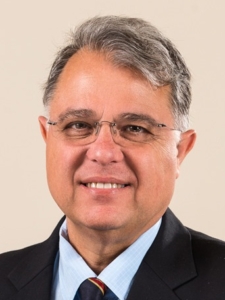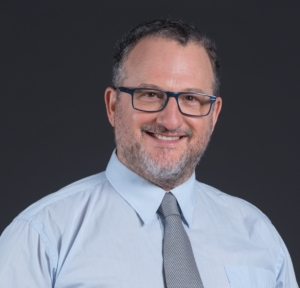Israeli Emerging Technologies Conference
- NanoScent
- CardiacSense
- SolarWat
- Agrinoze
- NovaSight
- Vanilla Vida
- BetterSeeds
- GrowDirector
- The Israel-Cambodia Economic Ecosystem
- Investing in Israeli AgTech
- Investing-in-Israeli-IIoT-Companies
- Investing in Israeli Cybersecurity Companies
- Investing-in-Israeli-FoodTech
- The-Importance-of-Israeli-Desertech
- The-Israel-Vietnam-Economic-Ecosystem
- The Israel-UAE Economic Ecosystem
- Investing in Israeli SaaS Companies
- Investing in Israeli Insuretech Companies
- The Israel-Czechia Innovation Ecosystem
- Investing in Israeli Digital Health Companies
- Investing in Israeli B2C Companies
- Israeli Smart Mobility
- Investing in Israeli Enterprise Software Companies
- Investing in Israeli Plant-Based FoodTech
- The Israel-Brazil Innovation Ecosystem
- Investing in Emerging Israeli Medical Companies
- Investing in Consumer-Focused Israeli Companies
- The Israel-New Zealand Economic Ecosystem
- The Israeli Aquaculture Industry
- Israel’s Water Industry
- The Israel-Korea Innovation Ecosystem
- Investing in Israeli Genomics Companies
- Investing in Israeli Femtech
- Transforming African Agriculture with Israeli Innovation
Company Profile
NanoScent is an engineering-driven start-up with 17 patents for its proprietary, nanotechnology-based sensing technology. NanoScent’s expertise is in the development and production of high-precision gas analysis systems for complex environments.
Established in 2017 and located in Misgav, Israel, NanoScent is leading the way for innovating gas monitoring technology with its tech know-how and state-of-the-art laboratories. In NanoScent’s portfolio is VOCID® H2Confirm, a monitoring solution for quantifying hydrogen quality and cleanliness in real-time, ensuring the supply is free of contaminants like humidity and oxygen by providing real time measurements of moisture and oxygen at the ppm level.
Website: www.nanoscentlabs.com
Oren Gavriely, CEO
Company Profile
CardiacSense, a medical device company, developed and is now selling FDA/CE cleared, wrist-based devices for continuous, accurate monitoring of human health. We enable optimal, rapid, access to actionable medical data, ensuring superior care. Our system detects atrial fibrillation with 99% accuracy.
System includes a smart wristband that continuously monitors physiological measurements, transmitting medical data directly to patients’ smartphones. Data is analyzed using proprietary algorithms and AI and medical alerts are displayed on the wristband, to the nurse-station and emailed to patient/doctor.
We are expanding capabilities to measure absolute blood pressure and CHF deterioration attracting interest from multinational corporations.
Website: cardiacsense.com
Contact: eitan.kyiet@cardiacsense.com
Eitan Kyiet, Deputy CEO

Company Profile
SolarWat (SLW) is an Israeli clean-energy start-up company that has developed patent-protected innovative, proven, comprehensive PV technology that consists of: a) Disruptive PV panel technology that provides significantly higher energy yield at a lower panel Cost/Watt; and b) An innovative PV panel manufacturing technology that substantially decreases the SLW panel C/W.
The advantages of SLW technology, combined with a partnership with the famous European PV panel manufacturer of production lines, allow us to stand out from the rest of the panel manufacturers and establish a viable PV panel manufacturing plant in Israel and the EU.
Our team is comprised of highly experienced, motivated, brilliant engineers, scientists, and business people.
Website: www.solarwat.co.il
Dov Vatelmacher, CEO

Company Profile
SAME FIELD, MORE YIELD. With a goal of ZERO% FERTILIZER MORE FOOD. FEWER RESOURCES. CLEANER PLANET.
Breaking the paradigm of conventional fertilization protocol which returns measured loss of dry material.
People all over the world are struggling with the impact of global warming including food shortages, water scarcity and toxic gas emissions.
Our differentiated and sustainable solution, is deployed and implemented across many geographies, increasing yield, saving water, reducing fertilizer usage to zero and improving CO2 absorption in soil.
Website: www.agrinoze.com
Erez Fai, Co-Founder & CEO

Company Profile
Established in 2016, NovaSight is a growing pediatric ophthalmology medical device company with a vision to change the lives of millions by introducing eye tracking based vision care solutions and data analytics into fun and engaging medical devices specially designed for the unique needs and attention spans of children.
NovaSight is focused on three main segments: Amblyopia treatment, Myopia prevention and Vision diagnostics.
Website: nova-sight.com
Ran Yam, Co-Founder & CEO

Company Profile
Through groundbreaking innovative, agro-tech processes, and data-driven curing, Vanilla Vida sets out to provide top-quality, tailor-made natural vanilla. We unlock new possibilities by offering a stable & sustainable vanilla supply chain.
We grow vanilla in zero-carbon footprint greenhouses and operate a novel data-driven indoor curing facility, which allows us to naturally navigate the sensory profile of the vanilla beans in accordance with specific demands.
By achieving the world’s most vanillin-concentrated vanilla – as recognized by leading F&F companies – we help our clients “do more with less” and maximize the cost-efficiency of their vanilla operations.
Website: www.vanillavida.com

Oren Zilberman, CEO
![]()
Company Profile
BetterSeeds, a deep-tech plant genetics company, enables food security with its breakthrough gene editing technology.
BetterSeeds solves two major problems for food supply: The limited applicability of CRISPR on all crops; and Climate change’s negative effect on crop yields
BetterSeeds’ unique molecular technology platform, EDGE (Efficient Delivery of Gene Editing), enables the broad crop use of CRISPR, thus providing a wider-range of crops integrated with innovative traits.
Using its technology BetterSeeds enhances cash crops to face climate change, by applying the company’s unique traits platform such as drought and heat resiliency.
BetterSeeds solutions enable sustainable food supply.
Website: www.betterseeds.com
ido.margalit@betterseeds.com
+972 522 423 581
Ido Margalit, CEO

Company Profile
Grow Director is at the forefront of advanced climate control solutions for greenhouse and indoor farming.
Our latest innovation, the GrowDirector 3 PRO, offers a comprehensive automation system equipped with AI software, wireless sensors, and controllers. It’s designed to be modular and scalable, streamlining horticultural operations and leading to remarkable yield increases and cost savings. Since 2016, our collaboration with growers and industry stakeholders across North America, Europe, and Israel has informed our designs, addressing common challenges faced in horticulture. The journey to creating the GrowDirector 3 PRO was challenging, yet ultimately fulfilling, as we crafted a solution that meets the nuanced demands of the industry.
Website: http://www.growdirector.com
dima@growdirector.com
+97-255-687-5750
Dima Chernobilsky, CEO Co-founder
The Israel-Cambodia Economic Ecosystem
Combine the world’s greatest innovation machine with a fertile land hungry for development and you have tremendous opportunities. Cambodia is rapidly developing, more stable than many believe and already sophisticated in terms of banking, communications and regulation.
Where else can you glean fascinating insights into the Israel-Cambodia relationship? Listen and learn about:
- Israel’s program to train Cambodians in agricultural technology.
- Cambodia’s currency stability and repatriation laws.
- Why Cambodia is a launchpad for serving the ASEAN countries.
- How to communicate with Cambodians linguistically, culturally and technologically.
- The impact of China’s Belt and Road Initiative on Cambodia.
- The ease of creating businesses in Cambodia.
- The Cambodian industries that are best positioned to embrace Israeli technologies.
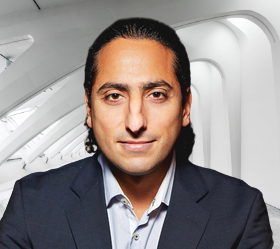
Moran Hadad, President, The Israel-Cambodia Chamber of Commerce
Moran Hadad is the President of the Israel-Cambodia Chamber of Commerce. Moran is a visionary and successful entrepreneur with a Master of Arts in Civil Engineering and a Master of Advanced Studies degree in Augmented Reality and Artificial Intelligence.
Moran has always been fascinated by the merger of social responsibility and technology which has been nurtured by his decades-long work in emerging markets.
Investing in Israeli AgTech
There is a ton of agricultural innovation in Israel. Whether it is precise genetics, targeted pesticides, indoor farming, robotics, precision irrigation, data management or supply chain management, Israeli companies are working hard to relieve the world of its current food insecurity.
This podcast discusses issues such as:
- How does precise genetics accelerate the breeding of seeds?
- Are organic pesticides overrated?
- How sensitive is indoor farming to prices of electricity and availability of water? How scalable is indoor farming?
- How can technology reduce food wastage?
- Who increasingly owns data generated by farmers? The farmers or the manufacturers of farming machinery?
- How exact is precision irrigation in terms of optimizing the time at which irrigation occurs?
Among the fascinating Israeli AgTech companies mentioned are Agritask, Agurra, BeeHero, BetterSeeds, FruitSpec, Plantish, Supplant and Weedout.
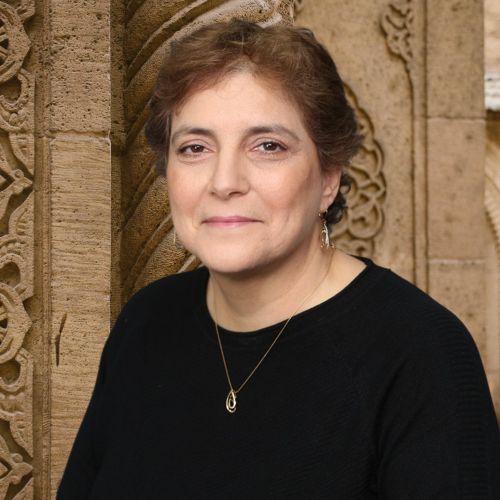
Dganit Vered, CEO, Smart Agro Fund
Dganit was a Venture Partner at Entrée Capital, managing the AgriTech and FoodTech investments. Dganit’s prior experience extends from VP R&D to CEO roles in numerous companies such as Perrigo, Hazera and Nobactra. She started her journey in semiconductors with Intel and in her last position she was Israel Fabs CS site manager. Dganit holds a BSc in chemical engineering from the Technion.
Investing in Israeli IIoT Companies
Tal Paperin delivered an excellent primer on Israeli Industrial Internet of Things (IIoT).
He explained how IIoT interfaces with supply chain management software and artificial intelligence. He discussed factories procuring IIoT pre-installed on machinery versus retrofitting older equipment.
If you don’t know the answers to the following questions, you really should listen to this podcast.
- How important is 5G to IIoT?
- To what extent are employees and unions opposed to IIoT deployments?
- Can IIoT legitimately be called a ‘green technology’?
- How are IIoT sensors powered? What kinds of communications protocols enable IIoT communications? To what extent are IIoT systems and sensors interoperable?
- How important is cybersecurity to ensuring the smooth running of IIoT? How rapid are IIoT sales cycles?
One of the fascinating Israeli companies that Tal introduced us to is Augury.
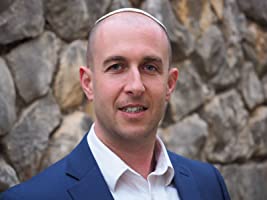
Tal Paperin, Vice President of Global Sales, Bacsof
Tal Paperin is the Vice President of Global Sales for Bacsoft, an Israeli IIoT Company, backed by Sun Corp. from Japan. During his career, Tal has managed all aspects of International Sales, Strategic Business Development and Global Expansion.
He has opened new markets, trained sales teams, secured distributors, managed budgets and pipelines, and negotiated with venture capitalists. He speaks English, Hebrew, Russian and Chinese.
Investing in Israeli Cybersecurity Companies
Aaron Applbaum segments the cybersecurity industry and discusses the moats surrounding cybersecurity companies. He provides insight into the importance of marketing and developing common platform technologies in the cybersecurity space.
Aaron introduces us to three fascinating portfolio companies—Autofleet, Orca and Hexight.

Aaron Applbaum, Partner, MizMaa Ventures
Aaron Applbaum is a Partner at MizMaa Ventures, which invests in early-stage companies. Previously, Aaron was the Director of Investments at Strategic Cyber Ventures and worked on the Direct Investments desk At Hudson Bay Capital Management.
MizMaa Ventures assists its Israeli portfolio companies commercialized in the East and West. In fact, MizMaa is the portmanteau for the Hebrew words for East and West. MizMaa is also shepherding its companies to the Gulf and it has received investment from at least one Gulf sovereign wealth fund.
Investing in Israeli FoodTech
The food production and supply chain is breaking down. One need not look further than store shelves or grocery store receipts.
Fortunately, a tsunami of innovative Israeli companies is developing an array of protein, dairy and seafood replacements. Other Israeli companies are busy ratcheting up the health quotient of common consumables.
This fascinating podcast discusses issues such as:
- What is the difference in plant-based and cell-cultivated protein replacements in terms of processes, regulatory pathways, capital intensity, scalability and consumer acceptance?
- Are protein replacements compliant with kosher and halal strictures?
- How do foodtech products rate in terms of taste?
- Should production facilities be large—and few and far in between—to achieve economies of scale? Or should numerous smaller factories be placed closer to customers?
- What does the retail price trajectory for foodtech products look like?
Among the intriguing companies mentioned during this podcast are Aleph Farms, Zero Egg, Imagindairy, Amai Proteins and Better Juice.

Amir Zaidman, Vice-President of Business Development, The Kitchen Hub
Amir Zaidman is the Vice-President of Business Development at The Kitchen Hub, Israel’s leading seed investor and technological incubator focusing on FoodTech. Amir has degrees in accounting, law and business. Amir has served on the Boards of a diverse array of FoodTech companies, including Nutritional Growth Solutions, an Australian Stock Exchange company.
The Importance of Israeli Desertech
If you don’t go to the desert, the desert may soon come to you. Each year, the equivalent of tens of thousands of football fields of fertile soil turn to dust due to soil degradation. Many other areas of the world’s landmass are experiencing desert-like symptoms such as sandstorms and extreme heat.
This fascinating podcast discusses issues such as:
- Why is it important that Israel more fully develop the Negev? How is Israel more fully developing the Negev?
- How can problems with deserts lead to problems elsewhere?
- What technologies are Israeli companies offering with respect to extreme climates? Water scarcity? Land degradation? Remote living?
- How portable is the technology that is being developed in the Negev to other deserts?
- What is being done to introduce Israeli Desertech to other parts of the world?
- Can Israeli DeserTech companies access funding offered by international or European development funding sources?
Among the intriguing companies mentioned during this podcast are Asterra, Salicrop, Solcold, Dots and Soled.

Nicole Hod Stroh, Executive Director, Merage Foundation
Nicole Hod Stroh is the Executive Director at Merage Foundation. A native of Colombia, Nicole’s career includes high-level positions in international development, non-profit management and venture philanthropy spanning the United States, Latin America and Israel.
The Israel-Vietnam Economic Ecosystem
The Israel-Vietnam relationship is very strong and multifaceted but the cultures are worlds apart. The Vietnamese culture is very hierarchical and great pains must be taken to avoid causing the Vietnamese a loss of face. In Vietnamese, there are ten words for “yes” but no words for “I,” “me,” or “you.”
The following are among the issues discussed during this fascinating podcast:
- How should contracts with Vietnamese partners be drafted to ensure maximum enforceability?
- To what extent is Vietnam a springboard for Israeli companies to penetrate other Southeast Asian countries?
- How developed is the infrastructure in Vietnam and how reliable is the electricity?
- Which Vietnamese industries have the greatest pain points, and thus greatest receptivity to Israeli technology?
- What is expected in terms of gift giving? How should one respond to inducements to pay bribes?
- What are the underpinnings of an increasingly warm Israel-Vietnam relationship?
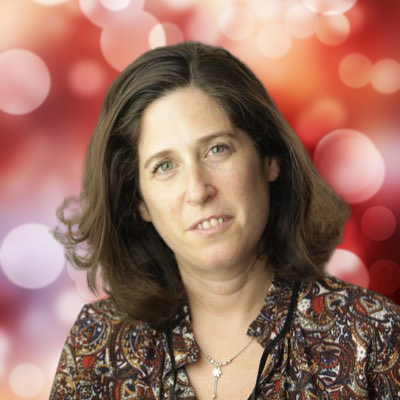
Einat Halevy Levin, President, Israel-Vietnam Chamber of Commerce
Einat Halevy Levin is the President of the Israel-Vietnam Chamber of Commerce and the Vietnam Desk Manager at BDO. Einat lived in Vietnam for five years and speaks Vietnamese fluently.
The Israel-UAE Economic Ecosystem
The Abraham Accords normalized relations between Israel and the United Arab Emirates. Among the issues discussed during this fascinating podcast include:
- What is the primary reason that the UAE decided to normalize relations with Israel?
- What is the likelihood that other Arab countries—such as Saudi Arabia, Kuwait and Oman—may normalize relations with Israel?
- What are the cultural inhibitors to Israelis and Emiratis transacting business together?
- Which Emirate industries have the greatest pain points, and thus greatest receptivity to Israeli technology?
- To what extent may warmer relations with the UAE help Israeli companies serve Muslim countries such as Indonesia and Malaysia?
- How might growing Emirate technologies in Israel foster better relations with Arab Israelis and Palestinians?
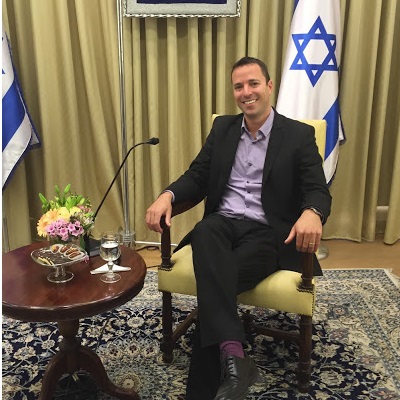
Gilad Carni, CEO & Founder, The UAE Israel Innovation Office
Gilad Carni is the CEO & Founder of the UAE Israel Innovation Office and the Founder & Chairman of GC Marketing Services, a NYC-based nationwide promotional and event staffing company.

Noa Gastfreund, Vice President, UNIPaaS Payments Technologies
Noa Gastfreund is Vice President Of Business Development at UNIPaaS Payments Technologies and the Co-Founder of the UAE-IL Tech Zone.
Investing in Israeli SaaS Companies
This excellent podcast touches on three captivating topics—assessing SaaS companies, Israeli companies outsourcing programming to Eastern Europe, and venture debt.
Listeners will learn when SaaS companies should embrace the freemium model versus charging for multiple years of service upfront, when to (and when not to) charge on a per-seat basis, and the calculation of retention rates.
Anton discusses various facets of venture debt such as maturities, costs, conversion, covenants, and collateral (or lack thereof).
This podcast includes a discussion of the pros and cons of Israeli SaaS companies programming software in Eastern Europe. Anton discusses some of his portfolio companies such as Comeet and Guesty.

Anton Fedorov, Partner, Flashpoint Venture Capital
Anton Fedorov is a Partner at Flashpoint Venture Capital, which manages some $500 million through its offices in London, Tel Aviv, Riga, and Warsaw. Anton is a venture capitalist and angel investor with vast experience in finance, tech project management, and SEO marketing. He is passionate about early-stage companies, scalable business models, and superb product teams.
Investing in Israeli Insuretech Companies
Listeners will learn a great deal about Israeli innovation in the insurance sector. Among the issues discussed are capital requirements, regulatory regimes, the application of AI, protecting proprietary innovations and new lines such as homeowners association insurance and cyberinsurance.
Also discussed is the impact of Israeli military intelligence units on the Israeli entrepreneurial ecosystem. Light is shed on the early identification of the most promising candidates, mission critical challenges pursued in elite intelligence units, and the transfer of critical technologies for commercial use.
Listen to Gilbert Ohana discuss some of Israel’s most promising insuretech companies. Among the companies mentioned are Hippo, Lemonade, Next Insurance and insurance.io.
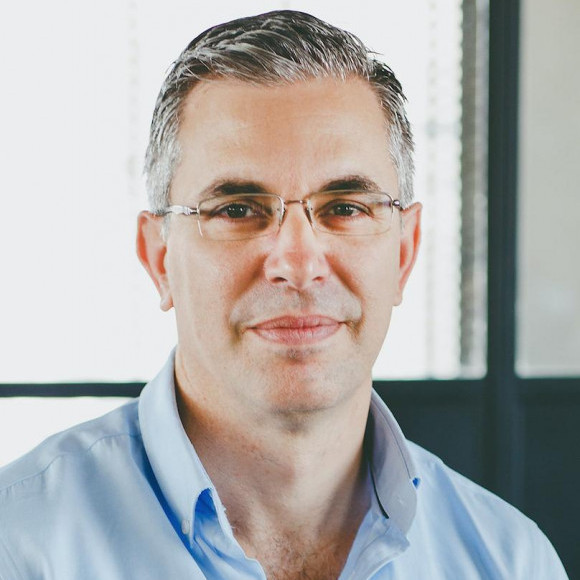
Gilbert Ohana – Co-Founder and Managing Partner at FinTLV Ventures
A senior executive with 15 years of track-record executive-level experience and more than 26 years of technology experience overall, delivering innovative, high risk and complex initiatives around IT Strategy and Enterprise Architecture, with a focus on Digital Transformation initiatives, to achieve business goals and competitive advantages.
Combines business understanding and an entrepreneurial spirit, along with broad technology orientation, strong leadership, and management skills, motivating technology teams, peers, partners, and senior management levels.
Consultant at the Prime Minister’s Cyber Bureau and the Israeli Government’s Cyber Authority.
The Israel-Czechia Innovation Ecosystem
Don’t miss this one-of-a-kind podcast that focuses on the special relationship that Israel and Czechia enjoy.
These two nations helped each other win independence and embrace capitalism. Support for Israel permeates the Czech political landscape and Czechia votes along with—or in support of Israel—99% of the time.
Israeli technology is found in cars on Czech roads, on Czech farms, and in mobile apps.
Some things you may not know are how Israeli fintech and cybersecurity companies tap Czech programmers.
How the two nations host joint hackathons. How Czech and Israeli universities collaborate on foundational medical research. And how Israeli defense technologies are deployed in the Czech armed forces.
The Israeli government has undertaken several initiatives to help Czechia foster its own innovation ecosystem while Czechia often serves as the springboard for Israeli companies to reach the broader European market.

About Linda Štucbartová
Linda Štucbartová is an Executive Board Member of the Czechia-Israeli Chamber of Commerce, responsible for Science, Research, and Innovation.
Linda was also nominated as Woman of the Year for bringing Empowerment Self Defense to Czechia. Through her company, Diversio, Linda mentored more than 1,000 leaders in developing innovation ecosystems.
Investing in Israeli Digital Health Companies
Listeners will learn about how connected health companies navigate clinical trials, group purchasing organizations and the reimbursement landscapes.
We discuss how these companies protect their secret sauce, the importance of predicates and crucial tips on receiving capital from strategic investors. Light is shed on how connected health companies impact malpractice risks, benefit from local regulations and should seek a trade-off in terms of efficiency and bedside manner.
Listen to Levy Shapiro and Goel Jasper discuss some of Israel’s most promising digital health companies. Among the companies discussed are Biotax, Sweetch, and Theranica.
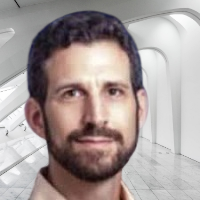
Levi Shapiro Founder, mHealth Israel
Founder, mHealth Israel: Non-profit supporting Israel’s connected health and medtech community, with 8000+ participants. Efforts include a mix of online and offline educational efforts, multinational advisory, etc.
Goel Jasper, Digital Health Innovation Group Lead at FINN Partners
– Seasoned PR/marketing professional
– Agency and client-side experience
– Strategic counselor to executives
– Experienced media trainer
– Story/message development
Investing in Israeli B2C Companies
Danny Cohen segments the business-to-consumer industry into niches such as consumer Internet, e-Commerce, direct-to-consumer, games and digital media.
He provides key insights into scaling B2C companies, reserving options pools, setting founders’ and executives’ compensation, the trend towards short videos, and fraud in the reporting of subscriber counts.
Danny also reveals some of the secrets as to why Israeli companies have had so much success in growing B2C companies.
Danny Cohen introduces us to three fascinating portfolio companies — Lightricks, Worthy and Faye.
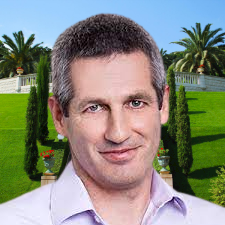
Danny Cohen, General Partner, Viola Ventures
Daniel “Danny” Cohen is a General Partner at Viola Ventures, which is dedicated to enabling Israeli entrepreneurs to build global transformational technology companies.
He has made invaluable contributions to Viola Ventures since 2013 and began his career as a developer and product manager at a few Israeli high-tech companies, including Commtouch and Scitex. He has a BA in computer science and psychology from Tel-Aviv University and an MBA from INSEAD.
Israeli Smart Mobility
Israel is one of the most densely populated countries in the world. Israel also has more than its share of traffic accidents: Israel’s police received 11,554 reports of traffic accidents resulting in casualties during 2021, a 6.6% increase from the previous year. As a result of its high incidence of traffic accidents and congested roads, Israel is making tremendous investments in smart mobility.
This unique podcast covers the gamut of Israeli Smart Mobility. Listeners will learn about Israel’s shared mobility, scooters, light-rail initiatives, electric vehicle policies, autonomous vehicles, and connected cars. Among the specific issued addressed in the podcast are:
- What is the schedule for the roll-out of light rail services in Israel’s largest cities?
- How do Israeli scooter sharing companies balance the deposits and availability of scooters?
- Why is the availability of electrified bicycles especially important given the heat during Israeli summers?
- Why is charging of electric vehicles especially challenging given typical Israeli living situations?
- What incentives for the adoption of electric vehicles exist in terms of taxes on new vehicles and fuel?
- How do Israeli shared ride hailing services differ from those in the United States?
- What is the thinking behind launching autonomous driving with public transport?
- Which factors account for Israel so quickly becoming a hub of automotive innovation?
- What can be learned from the demise of Better Place?
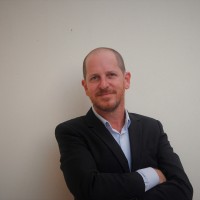
Daniel Zucker was a leader for the Smart Mobility Initiative within the Office of the Prime Minister.
Daniel formulated and orchestrated the Israeli national plan for smart mobility, a governmental resolution allocating 250 million NIS in order to make Israel a world leader both in R&D and implementation. He also led complex regulation and legislation processes regarding Electric Vehicles, Autonomous Vehicles and Ride and Car Sharing.
Investing in Israeli Enterprise Software Companies
Erez Lahav segments the enterprise software industry into niches such as machine learning, Internet of Things, marketing technology and Big Data. He provides key insights into determining the potential revenues that may be derived from distributors.
Erez introduces us to three fascinating portfolio companies—Pente Networks, Anima and Cyrebro.
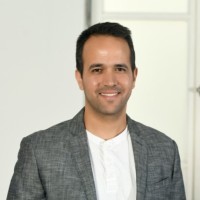
Erez Lahav, Principal, INcapital Ventures
Erez Lahav is a Principal at INcapital Ventures, which has offices in Toronto, Tel Aviv and New York. Erez has over 15 years of experience in technology and entrepreneurship; he founded and led two start-ups from bootstrap to acquisition. Erez was also a software solution architect for Amdocs in Dallas, Texas.
INcapital Ventures’s reputation as “bridge builders to the North American market” provides INcapital access to exclusive and attractive opportunities in Israel. INcapital invests in early growth-stage technology companies and is industry agnostic.
Investing in Israeli Plant-Based FoodTech
This fascinating podcast discusses the pros and cons of plant-based alternative proteins compared to cell-cultivated protein replacements. Issues discussed include:
- What are the capital requirements of plant-based alternative proteins compared to cell-cultivated protein replacements?
- How do the incremental production costs compare?
- How do the regulatory pathways compare?
- Do plant-based proteins have a significantly larger addressable market given that vegetarians may be more favorable to plant-based proteins versus cell-cultivated protein?
- What is the shelf-life of plant-based proteins?
- What does “clean labeling” mean and what is its significance?
- To what extent can different crops be mixed and matched in producing plant-based protein?
- How feasible is countertop 3D printing of plant-based meat alternatives over the next several years?
Chanan Schneider also introduced us to promising Israeli foodtech companies such as Phytolon, SavorEat, TIPA, TripleW, ansa, and Egg’n’up.

Chanan Schneider, CEO, Millennium FoodTech
Chanan Schneider is an entrepreneur, CEO, and experienced investor in start-ups. Since 2020, Chanan founded, built and managed the Food-Tech Incubator in Kiryat Shmona, partnering with Tempo, Tnuva, OurCrowd, and the U.S. VC Fund Finistere. Chanan founded IndaMed and managed companies such as Beta-O2 and Nitiloop.
The Israel-Brazil Innovation Ecosystem
This is your opportunity to learn about the history of the Israel-Brazil relationship. You will also gain insight into the current diplomatic, economic and research relationships that the two countries enjoy. The following are among the issues discussed during this fascinating podcast:
- Was Brazil supportive of Israel gaining statehood?
- To what extent does antisemitism exist in Brazil? How strong is the BDS movement in Brazil?
- How will Brazil’s pro-Palestinian Authority president affect relations between Israel and Brazil?
- How large is the Jewish community in Brazil? To what extent is there intermarriage?
- Which Brazilian companies have situated research facilities in Israel?
- Which of Brazil’s industries are of most importance to Israel? Which Israeli technology is of most interest to Brazil?
- Which Israeli universities have research alliances with Brazilian universities and companies?
- How frequently does Brazil vote with Israel at the United Nations?
- How should Israelis negotiate with Brazilians?

Marcia Zeitoune Janzen, Founder, Zeitoune Janzen Legal
Marcia Zeitoune Janzen is a senior business lawyer with a master’s degree in Corporate Law from the University of Bonn. Marcia has more than 25 years of work experience in Brazil, Germany, and Israel in the areas of corporate, international commercial contracts, fintech, high-tech, finance and banking. She has worked in-house for banks and in the international department of law firms in the areas of industry such as High-Tech, Chemical, Insurance, Oil & Energy, Import-Export, Maritime, Engineering, Printing, and more.
Investing in Emerging Israeli Medical Companies
Listen to Jonathan Glazer speak about the factors that spell success for Israeli medical companies.
The following are among the issues discussed:
- Regulatory pathways
- Insurance coverages
- Targeting sales to decision makers and estimating sales cycles
- Collaborating with academia
- Adoption by physicians and other medical professionals

Jonathan Glazer, MD, MBA VC / Pitango Venture Capital
Jonathan Glazer partners with outstanding early-stage HealthTech founding teams in segments ranging from digital health, to medical devices and diagnostics, to foodtech, agtech, biotech and life sciences
◆ Partnering with outstanding early-stage HealthTech founding teams in segments ranging from digital health, to medical devices and diagnostics, to foodtech, agtech, biotech and life sciences
◆ Emergency Medicine Specialist and Healthcare Executive with clinical, operational and managerial experience in hospitals, pre-hospital, and military systems
◆ Combining interpersonal skills with diverse experience in the healthcare business ecosystem to provide strategic consulting for tech companies
◆ An enthusiastic lecturer, researcher, and goal-oriented business professional with proven abilities in influencing and engaging executives and key stakeholders
Investing in Consumer-Focused Israeli Companies
Israeli retail companies are underappreciated. Listen to this podcast to learn about successful Israeli retailers and Israel’s retail innovation ecosystem.

Craig Weiss, Managing Partner, Flagstaff Ventures
Craig Weiss is the Managing Partner of Flagstaff Ventures, an early-stage, consumer-focused venture capital firm, headquartered in Arizona. Craig brings an entrepreneur-focused perspective to the venture capital field as one of the few institutional investors to have both built a unicorn as a CEO and also identified and invested in an early-stage startup that has achieved unicorn status.
Craig is also the Co-Founder and CEO of Retainer Club, Inc. & Mouthguard Club, Inc., two companies that help orthodontists and dentists provide their patients with online fulfillment of post-treatment retainers and custom-designed mouthguards for athletes.
Craig Weiss is also the Founder & CEO of Aladdin Dreamer, Inc. a technology company with a patented wearable that is designed to improve the 1/3 of our life that we spend asleep.
The Israel-New Zealand Economic Ecosystem
Where else can you learn about New Zealand’s Jewish history? Where else can you learn about the special relationship between New Zealand’s indigenous tribes and Israel? Where else can you learn about New Zealand’s rocky diplomatic relationship with Israel?
The following are among the issues discussed during this dynamic exchange with Josh Brown and Sheree Trotter:
- Why doesn’t New Zealand have an embassy in Israel?
- Why aren’t New Zealand and Israel better aligned at the United Nations?
- Are New Zealand’s indigenous people considered one of Israel’s lost tribes?
- What is the basis of the special relationship between New Zealand’s indigenous people and Israel?
- How effective is the New Zealand BDS initiative?
- Why might Israeli customs repel the importation of goods from New Zealand?
- Why might New Zealand be an ideal location for Israel to launch its rockets?
- Which Israeli technologies are most needed in New Zealand?

Josh Brown, Founder, New Zealand Israel Innovation Hub

Sheree Trotter, Co-Founder, Holocaust & Antisemitism Foundation of New Zealand; Founder of the Indigenous Coalition for Israel
The Israeli Aquaculture Industry
Much of the solution to the world’s food insecurity can be found in fish. Fish are more efficient at converting feed to protein than any other animal. No other animal can be raised at a density even approaching that of fish. Unlike raising chicken, pigs and cows, no efforts need be undertaken to provision wild fish with water.
Listen to this unique podcast and learn the answers to questions such as:
- Besides fish, what products are produced by Israeli aquaculture? What end markets do these products serve?
- How are Israeli companies making use of ammonia discharge from aquaculture to grow crops?
- How capital intensive is land-based aquaculture?
- Do fish raised in land-based aquaculture realize that they are not being raised in a natural environment? If so, does this realization affect their behavior?
- Are the fish raised in Israeli aquaculture genetically modified?
- How does using solar power reduce electricity requirements and evaporation?
- What role do regulators play in aquaculture?
Among the Israeli aquaculture companies discussed were Aquatech Fisheries, Pure Blue Fish, and AquaMaof.
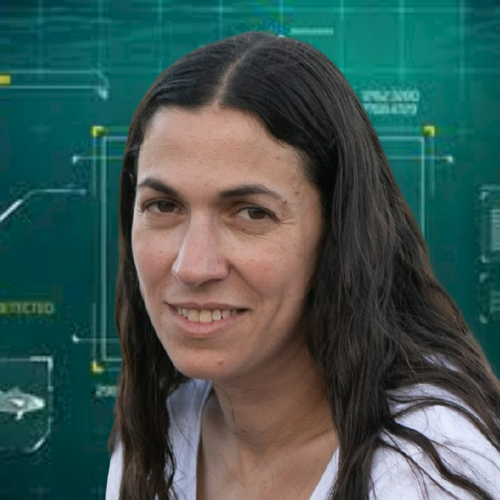
Roni Hochman Sussman
Roni Hochman Sussman is the AquaculTech Managing Director at the Israel Innovation Institute. Previously, Roni was a biology specialist at Algatechnologies and a project manager at Hazera Seeds.
Israel’s Water Industry
From desalination to water reuse. From smart metering to smart irrigation. From leak detection to new sources for powering water delivery, Israel is a world leader in water management. While many developed countries face water loss rates of 70%, Israel only loses about 5% of its water from source to tap. This podcast covers the gamut of Israel’s water industry.
Listen and you will learn:
- Why does Israel’s geographical location present vulnerabilities to its water resources? How does Israel’s geography enhance its water management?
- Why is Israel’s central management of its water resources the right model, at least for Israel?
- What are the concerns associated with installing desalination facilities in terms of costs, electricity consumption and discharge of brine?
- Why is there no hydropower in Israel? What is meant by “negative elevation distances?”
- What is pump-storage? What is the meaning of “the water-energy nexus?”
- How did Israel get ahead of the water rationing movement?
- How are drones, satellite imagery and mini-submarines helping Israel maintain its water pipelines?
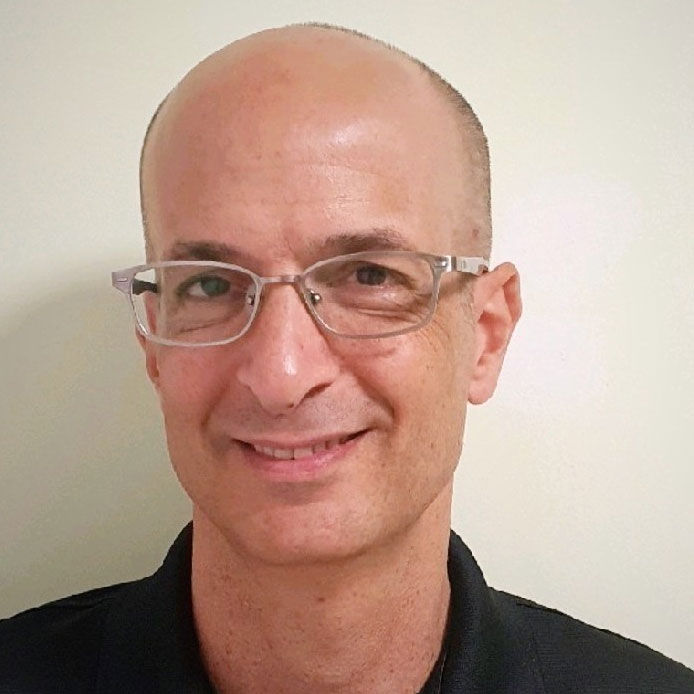
Ravid Levy, Senior Director, Wateredge.IL
Ravid Levy has some 20 years of experience in almost all facets of Israel’s water industry. He is currently a Senior Director at Wateredge.IL, Israel’s water innovation community. Wateredge.IL was founded in 2021 by the Ministry of Economy, The Innovation Authority, The Water Authority, and Kinneret Academic College. Wateredge.IL creates a network of professionals, entrepreneurs, researchers, and regulators to promote partnerships, problem-solving, technology development and growth in the water industry.
The Israel-Korea Innovation Ecosystem
Israel and Korea have a great deal in common. Both countries received their independence in 1948, have tensions along their borders, have compulsory military service and look after their diasporas. Israel is the largest consumer of Korean automobiles on a per capita basis and Israel looks to Korea as a testing ground for its newest innovations.
Listen to this unique podcast and learn the answers to questions such as:
- How does making financial projections for early-stage companies differ in Israel and Korea?
- What risks are associated with making concessions too early in negotiations with large Korean companies?
- To what extent is Korean culture becoming more receptive to risk-taking and entrepreneurialism?
- What should Westerners expect in terms of socializing during lunches and after work in Korea?
- How did Israel and Korea help each other during COVID?
- How proficient are Korean businesspeople in speaking English?
- What opportunities exist for Israel and Korea to collaborate in the fertility and cosmetics industries?
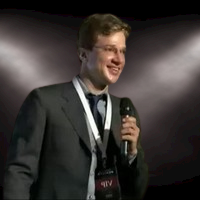
Ben Weiss, Venture Partner, SoftBank Ventures Asia
Ben Weiss is a Venture Partner with SoftBank Ventures Asia and a Managing General Partner at CE Ventures. He is also the Chairman at Alicorn as well as a Director at Glassbox and Pliops.
Investing in Israeli Genomics Companies
Renana Ashkenazi introduces us to investing in genomics. As the cost, speed and precision of genetic testing continue to improve, genomics is likely to become a more common treatment modality.
Renana discusses how genetic sequencing, genetic mapping and targeted testing can improve healthcare as well as some of the practical and moral concerns associated with genomics.
Renana introduces us to four fascinating portfolio companies—Navina, Nucleai, Protai and Tingo.

Renana Ashkenazi, General Partner, Grove Ventures
Grove Ventures is a leading early-stage venture capital firm with some $500 million under management. Grove Ventures also supports its portfolio companies with marketing, legal, accounting and personnel resources.
Renana Ashkenazi is a General Partner at Grove Ventures. She brings almost a decade of product and managerial experience in the areas of technology, Global Innovation, and strategic marketing.
Prior to joining Grove Ventures, Renana worked at Applied Materials and was an engineering research fellow at the Center for Innovation in Global Health Technologies at Northwestern University developing diagnostic devices for poorly resourced countries.
Investing in Israeli Femtech
FemTech is a broad field, encompassing everything from heart disease to reproductive treatment, from oncology to menopause, and from breast feeding to menstrual cycles. We learn that the two genders require different treatment regimens and demonstrate different symptoms for the onset of various diseases.
This podcast discusses issues such as:
- How should medical devices be designed to best suit women practitioners?
- To what extent do women’s health therapies need to be modified according to the patient’s ethnicity?
- What are the pros and cons of diagnosing women via telemedicine?
- To what extent is technology from Israel’s military utilized in furthering femtech?
- What aspects of menopause are targeted for treatment?
- What advances are being made in enhancing fertility and in detecting complications with fetuses?
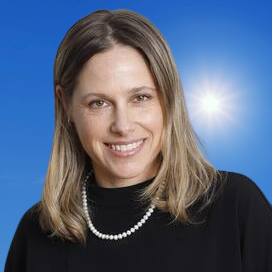
Sharon Handelman-Gotlib, Business Development Manager, Sompo Digital Lab
Sharon Handelman-Gotlib is the Business Development Manager at the Sompo Digital Lab in Tel Aviv. Sharon is a member of the FemTech IL management team.
Transforming African Agriculture with Israeli Innovation
Danielle Abraham discusses how Israeli know-how is being directed to boosting agricultural output in Africa. She discusses the state of African farming infrastructure, the role of extension officers and the magnitude of minimizing post-harvest losses. The podcast addresses the importance of government stability, the involvement of China in Africa and Africa’s receptivity to Israeli knowledge transfer.

Danielle Abraham
Danielle Abraham is the Executive Director at Volcani International Partnerships. Danielle has spent her career in Israel dedicated to connecting Israeli expertise to needs in developing countries.
She has previously served as a senior policy advisor in MASHAV, Israel’s agency for International Development Cooperation at the Ministry of Foreign Affairs, and represented Israel as a guest speaker at the UN, OECD and the German Development Bank.





